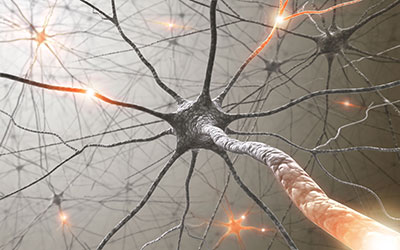Autistic people with enlarged brains over-express a cell that leads to the overgrowth, new research has found.
Children with autism and megalencephaly (an enlarged brain) have more severe behavioural and cognitive problems and are less responsive to therapy.

Children with autism with enlarged brains are more likely to struggle with behavioural and thinking problems and are harder to reach with therapy
Up to one in five autistic people affected
Between 15-20 per cent of people on the autism spectrum have disproportionate megalencephaly (ASD-DM), with enlargement in both the brain’s grey and white matter.
ASD-DM can lead to very poor outcomes for those with the condition.
Opportunity to improve symptoms
Dr Sundari Chetty, assistant professor of psychiatry at Harvard Medical School, is leading the research.
She believes that understanding the mechanism behind brain overgrowth could provide an opportunity to improve symptoms.
Chetty’s research has previously shown that there is an over-expression of CD47, a ‘don’t eat me’ signal on some brain cells, in people with an enlarged head (macrocephaly) and deletion of the 16p11.2 chromosome.
People with 16p11.2 deletion syndrome usually have developmental delay and intellectual disability.
Chetty studied cells from children aged between two and four. Some of the children had ASD-DM, while others were autistic with normal-sized brains. There were also some typically developing with megalencephaly and others typically developing with normal-sized brains.
The researchers also found similar cellular problems where there is an over-expression of the protein CD99 in children with autism and megalencephaly. There is a link between CD99 and myeloid leukaemia.
‘Not just being wired differently’
In a statement, biomedical charity Thinking Autism said the study, like many others before it, challenges the “widely-held but unproven narrative that autism is simply being wired differently”.
The charity added: “We hope that this research, if it can lead to treatments, may help improve quality of life enormously for people with certain subsets of autism. More research into identifying further autism subsets is urgently needed.”
The researchers presented their unpublished research at Neuroscience 2022 in San Diego, California.
Related:
- Autism may arise early in growing brain
- Brain size linked to gene mutation
- Fetal brain scans may hint at autism traits
- Study points to brain cell issue
- New test heralds early autism diagnosis
- Gene link found to autistic behaviours
- Links found to bipolar and schizophrenia
- Children re-diagnosed with brain illness
- Thousands of children ‘misdiagnosed’
- Social difficulty traced to brain region
Published: 28 December 2022















